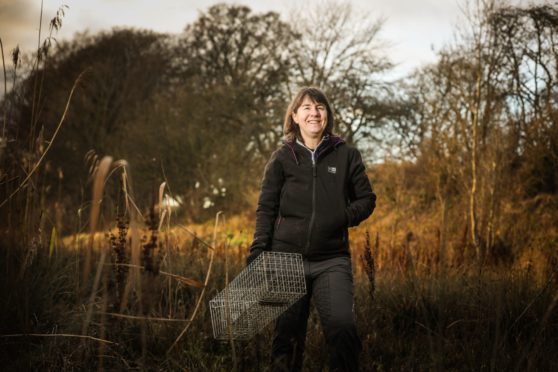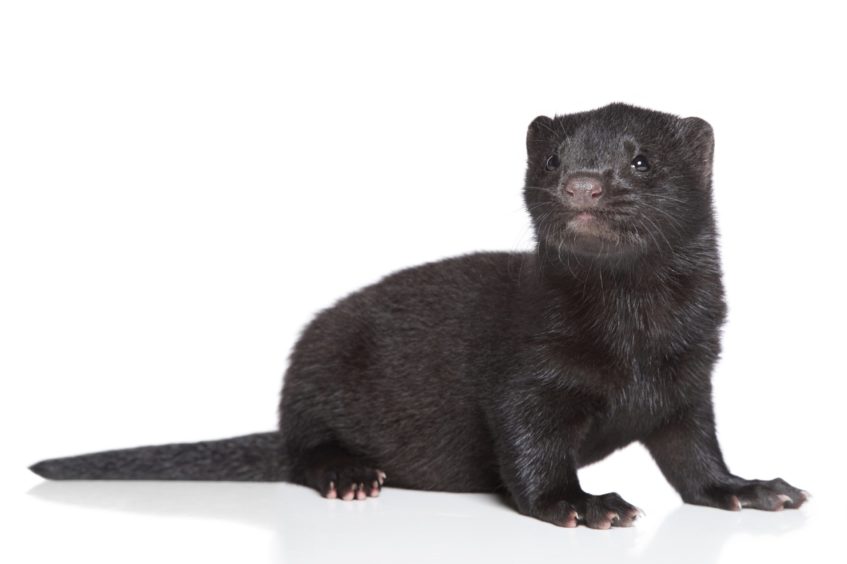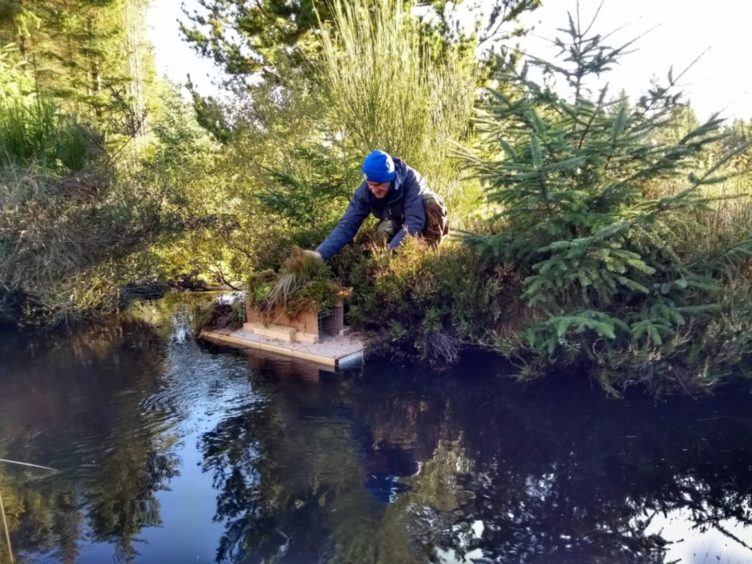
Wildlife protection teams have captured hundreds of American mink in Scotland in a drive aimed at saving endangered animals.
Volunteers have joined the project led by NatureScot after being inspired by appeals to help control numbers of the imported killers.
Mink are prolific and effective predators as they can hunt on land and in water, meaning they pose a serious threat to some of Scotland’s rarest species, including water voles and ground-nesting birds.
Water vole numbers plummeted by 90% in the 1990s, partly because their escape tactics of diving underwater or dashing into their burrows were ineffective against mink.
The semi-aquatic mammals – which began escaping into the wild after being introduced to Scotland in 1938 to be farmed for their fur – also feast on the eggs and young of vulnerable ground-nesting birds.
But wildlife enthusiasts and nature organisations are fighting back through the Scottish Invasive Species Initiative, which covers a third of the mainland north of Perth. The project to catch and dispatch mink uses special floating rafts and humane traps placed at strategic points on waterways and even close to garden ponds where they have been spotted.
By using volunteers, the initiative is intended to provide a sustainable strategy to control the mink population in future as complete eradication is unlikely to be achieved.
Significant inroads have already been made in mink numbers, with 320 caught between 2018 and September this year.
Ali Thornton, a carer from Errol, Perthshire, started volunteering in 2018. She caught five mink last year and just one this year on the patch around the Tay Reedbeds where she co-ordinates a rota of four other volunteers. She said: “It’s not recreation. It’s about being proactive to protect our native species. The mink just wipe through other animals and birds. The reedbeds are a very special place for the bird population.“
Bill Stewart, a retired farmer, is one of the team members at the Tay Reedbeds and became involved because of his enthusiasm for native bird species. He monitors the traps every Wednesday, allowing volunteers to meet the legal requirement of checking them at least once every 24 hours. He said: “We try to figure out the routes the mink take. There are small streams that run into the reedbeds.”
Volunteers use rafts fitted with a tunnel section and a layer of clay to see whether the naturally inquisitive mink go inside and leave their pawprints. Traps are then deployed on the raft and if a mink is caught it is then humanely killed, usually by the qualified duty staff member from NatureScot.
Any other species except rats and grey squirrels which are found in the traps are gently released.
Most of the project switched to monitoring when the strictest coronavirus lockdown came into force in March, but two-thirds of volunteers were eager to continue their efforts.
Clare Fulker, a mum-of-two from Aberdeenshire, was keen to carry on helping as she uses a wildlife camera on the rafts she checks, and has had sightings of a wildcat, pine marten and kingfisher. She said: “You get wee bonuses like that. I’ve had no traces of any mink but I’ve certainly had a lot of wildlife.”
There were 337 volunteers this year compared to 195 in 2018, and in total over the course of the initiative they have put in 45,675 hours – the equivalent of 31 full-time staff for a year. In total, 431 rafts and 241 traps have been used this year.
Callum Sinclair, NatureScot’s project manager for the invasive species initiative, said: “Mink are certainly one of the major culprits of the invasive animals, and their impacts are on ground-nesting birds and on water voles.
“They are fantastic predators. They can predate on land and in the water, which means water voles are unable to get out of the way of them.
“We get a lot of people volunteering to help us with the mink project from across the community. There are fisheries, gamekeepers, landowners, but also individual householders who have maybe lost their favourite chickens to mink.
“There are over 300 volunteers involved so we’re not actually running those sites ourselves, other people are running them with us. We would just not be able to cover the geography as it’s such a large area.”

Enjoy the convenience of having The Sunday Post delivered as a digital ePaper straight to your smartphone, tablet or computer.
Subscribe for only £5.49 a month and enjoy all the benefits of the printed paper as a digital replica.
Subscribe © Shutterstock / Jagodka
© Shutterstock / Jagodka